In Nepali culture, co-workers and friends can go years without learning one another’s names. Not because of estrangement, rather, quite the opposite. Everyone refers to one another in the familiar Aama/Buwa (mother/father), Didi/Bahini (sister/little sister), Dhai/Bhai (brother/little brother).
An ingrained desire to support brothers and sisters is the well from which this journey sprang, so it seems a good place to begin the telling. What I struggle with is delineating the difference between supporting and giving.
As I see it, giving is an act by which we say, “here, take and do with it as you will.” In giving, we abdicate influence over the application.
Support is directed at achieving an outcome.
My ongoing conundrum is, how do these influence overall results?
My motions remain under construction. For now, where it comes to providing aid, I lean toward Support.
Still, recognizing there is a balance to be struck and it lies somewhere different for each of us.
Will preface with two points.
According to a statistic from 2011:

Poverty is a serious issue and, while it affects many components of life, such does not dictate quality of the people. Despite the difference in poverty levels between rural and urban areas, as we walked through the country I was struck by how many along the trail seemed deeply contented. Laughter and singing was heard everywhere.
The soundtrack as I work on this post is that of school children playing and, believing education is key to a nation’s climb out of poverty, this is a country brimming with hope.
We reach across, not up or down.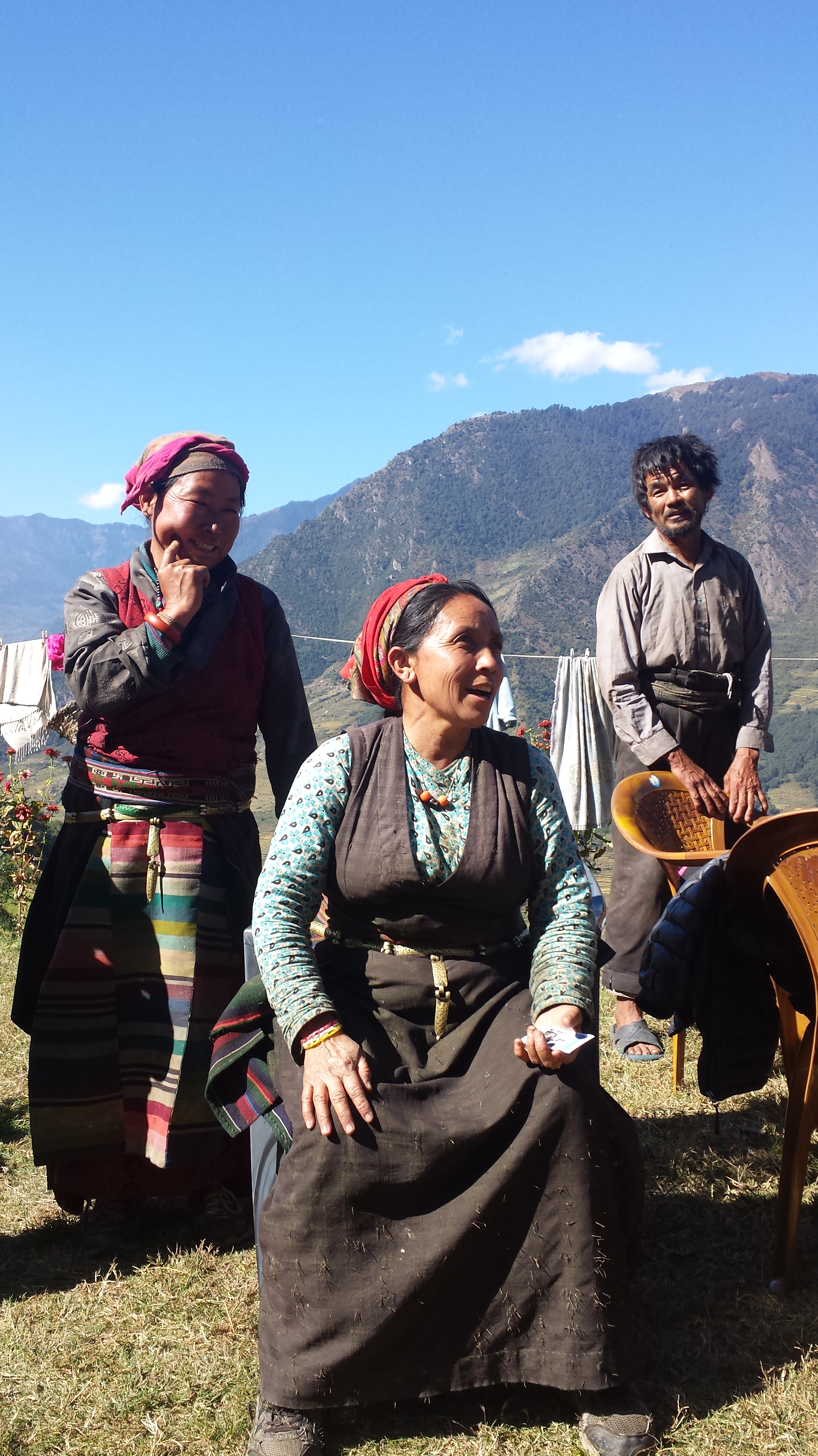
Second point. Nepal’s main industry being trekking and tourism, sudden attention from foreign nations has prompted unprecedented growth in Non-Governmental Organizations. A knee jerk reaction to living in poverty is the drive of individuals to get themselves and their friends out of hardship. Alternately, honest beginnings to help others can rapidly skew to greed by sudden influx of even well intended but poorly monitored funds.
As Sanjay Pradhan of the World Bank aptly puts it:
“The challenge of development: abject poverty surrounded by corruption.”
With over 60,000 NGOs registered with the Nepali government, a degree of skepticism and fact checking is necessary to ascertain whether your funds are going into someone’s pocket or to its purported purpose.
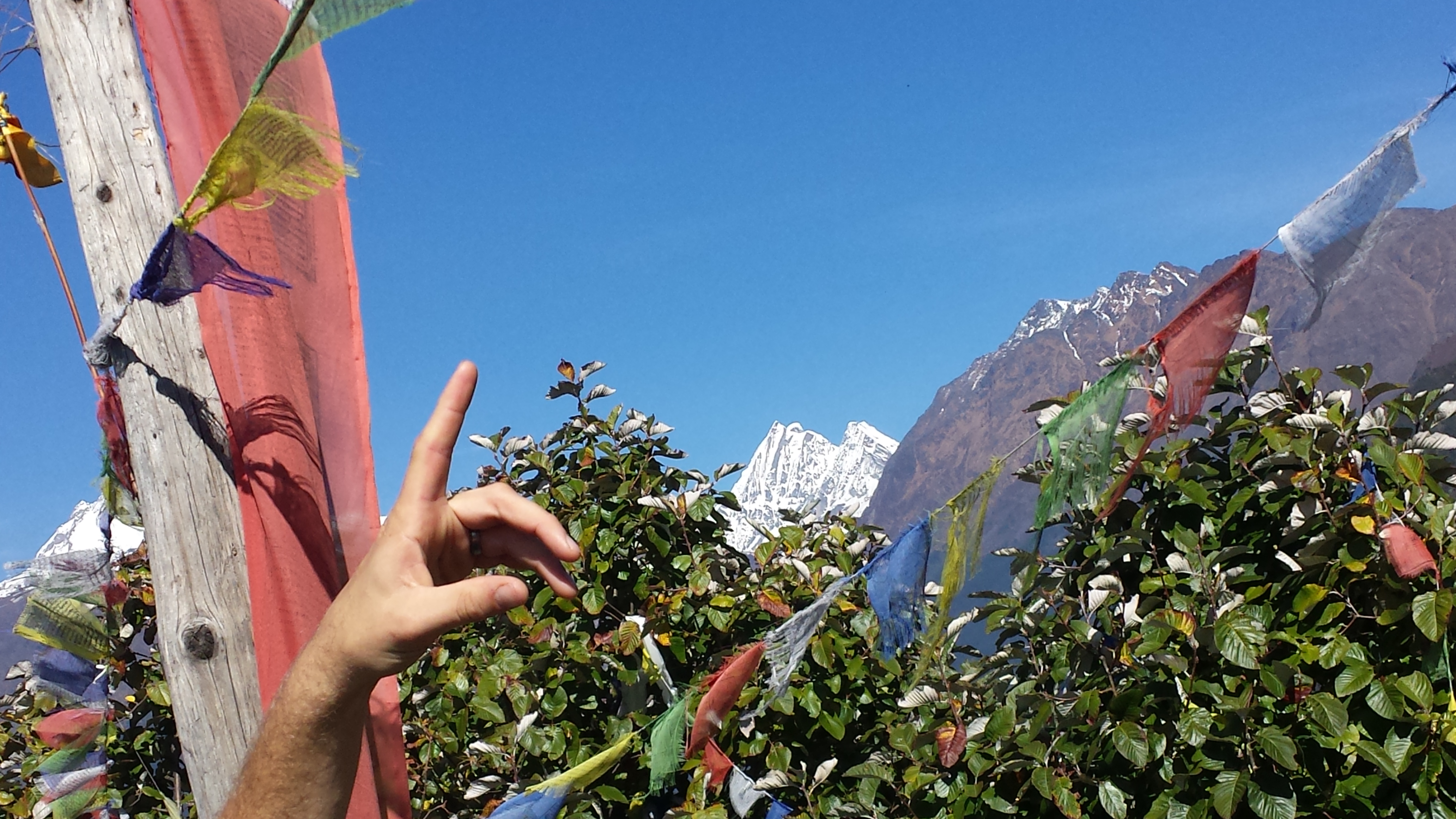 Our trip here was the brainchild of two exceptional men involved in the world of micro-finance who met years ago working through Kiva.
Our trip here was the brainchild of two exceptional men involved in the world of micro-finance who met years ago working through Kiva.
JD has since started his own nonprofit, Chooda, and has overseen a number of group trips abroad and raised hundreds of thousands of dollars for causes such as poverty, AIDs awareness and support in Africa, and now, health care and education in Nepal. This man keeps his finger in the pie. More than that, he monitors ingredients, has decades of experience and pours himself into the making.
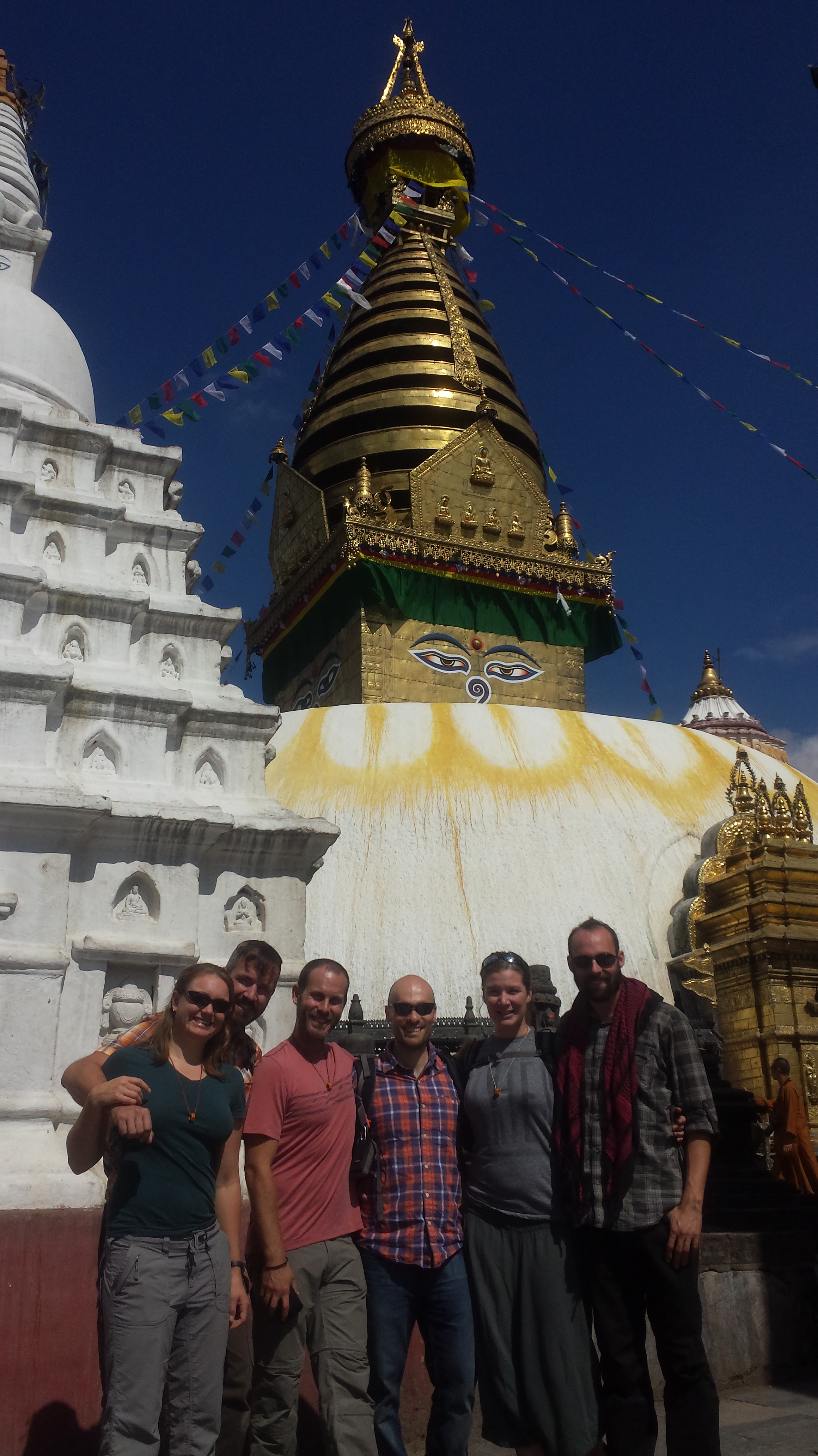 Our group of 6 (six) raised over $13,000 to support Possible Health, “a team determined to make a model of durable healthcare work where everyone said it couldn’t be done.”
Our group of 6 (six) raised over $13,000 to support Possible Health, “a team determined to make a model of durable healthcare work where everyone said it couldn’t be done.”
The first $4,000-$6,000 we raised went to a grant developed by one of our party, Laurie, and individuals at Possible, to develop a rural care clinic into a birthing ward in an area where childbirth mortality rates are extremely high.
The majority of our group were also able to visit with the director of Teach for Nepal and got to see one of their teachers in action. As national and individual awareness expands to needs beyond our borders, Teach for America’s founder shifted to Teach for All. The two are partnering to educate this county’s children.
We continue to discuss channels to allot the funds you contributed. Through our albeit brief experience, we have born witness to needs, sources, and strengths of Nepal. I am thrilled to hear our entire group orient toward supporting women’s rights and development.
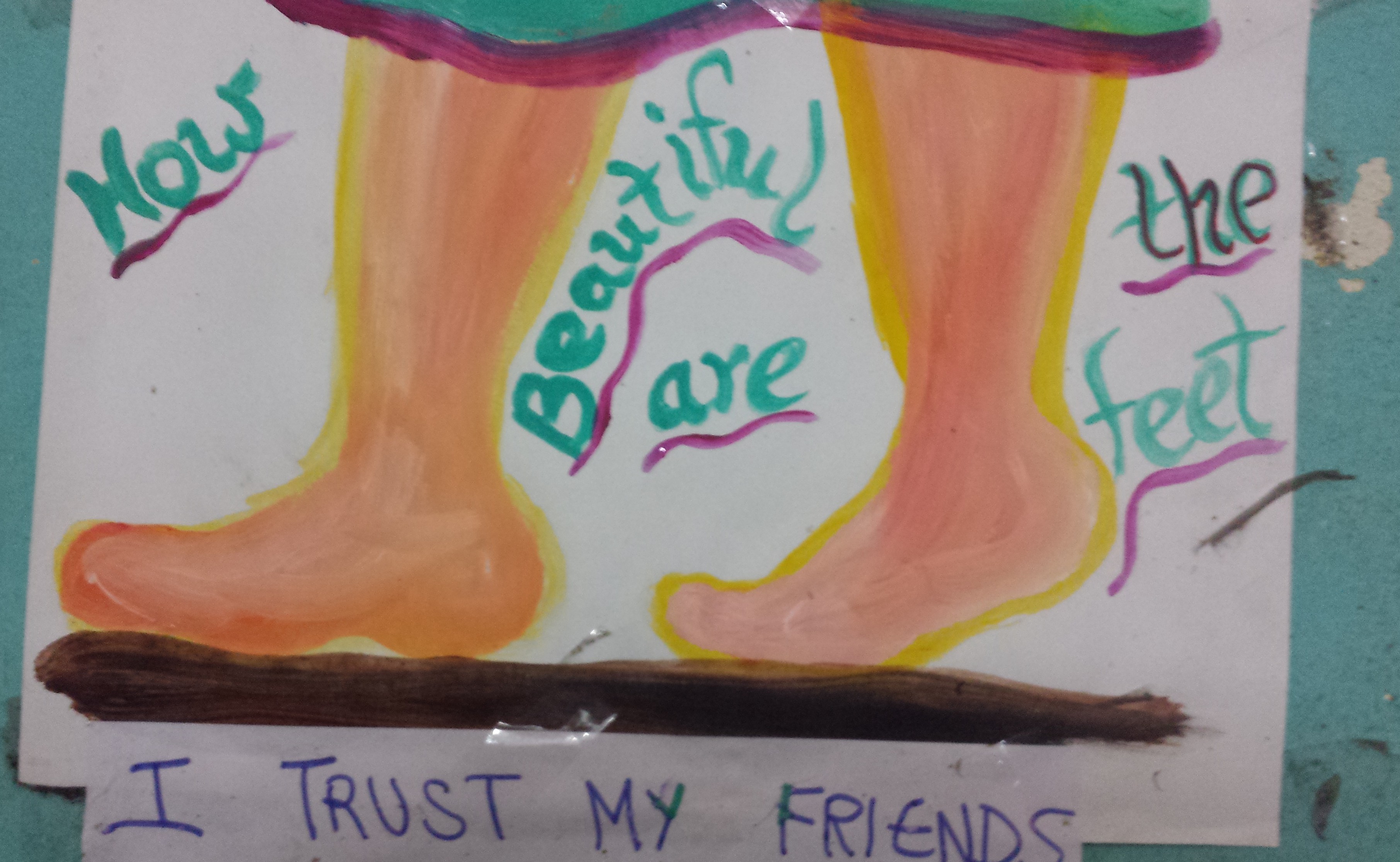 Springing from my own curiosity, in a few minutes I will head over to visit Raksha Nepal, an organization focused on women and children who have been sexually exploited. Having existed for 10 years, citing many sources outside themselves and the country, and having touched the heart of my friend Molly so deeply, I am confident.
Springing from my own curiosity, in a few minutes I will head over to visit Raksha Nepal, an organization focused on women and children who have been sexually exploited. Having existed for 10 years, citing many sources outside themselves and the country, and having touched the heart of my friend Molly so deeply, I am confident.
[This confidence was affirmed by the site visit which turned out to be an experience unto itself.]
Molly and Megan are idealistic and invested. They are raising funds to secure a safe and stable residence for the children who live in Raksha; with plans to themselves return and work with the organization next spring. I trust the integrity of this effort and fully endorse them. Here is their fundraising site.
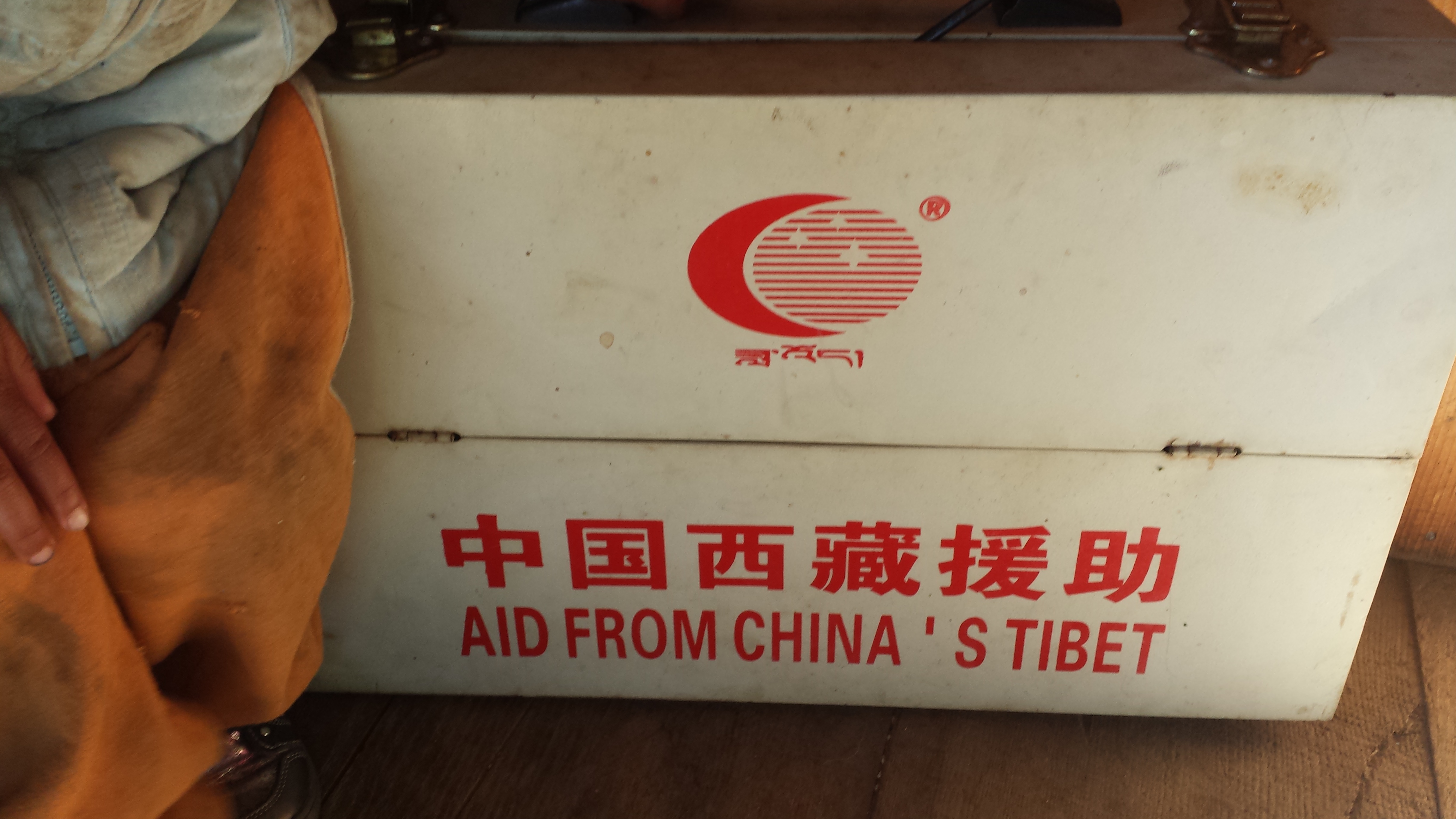 It is my perspective that, money to corruption is a downhill flow; a rut much easier to follow than maintaing the lateral relationship to aid. Casting about for a balance of understanding, I turn to list making.
It is my perspective that, money to corruption is a downhill flow; a rut much easier to follow than maintaing the lateral relationship to aid. Casting about for a balance of understanding, I turn to list making.
Whereas giving money is not necessarily an avenue to promoting good, here are a few things which I believe are (in no particular order):
1) Music
2) Education
3) Healthcare
4) Committing to a Cause
5) Bolstering Self Confidence- Independence
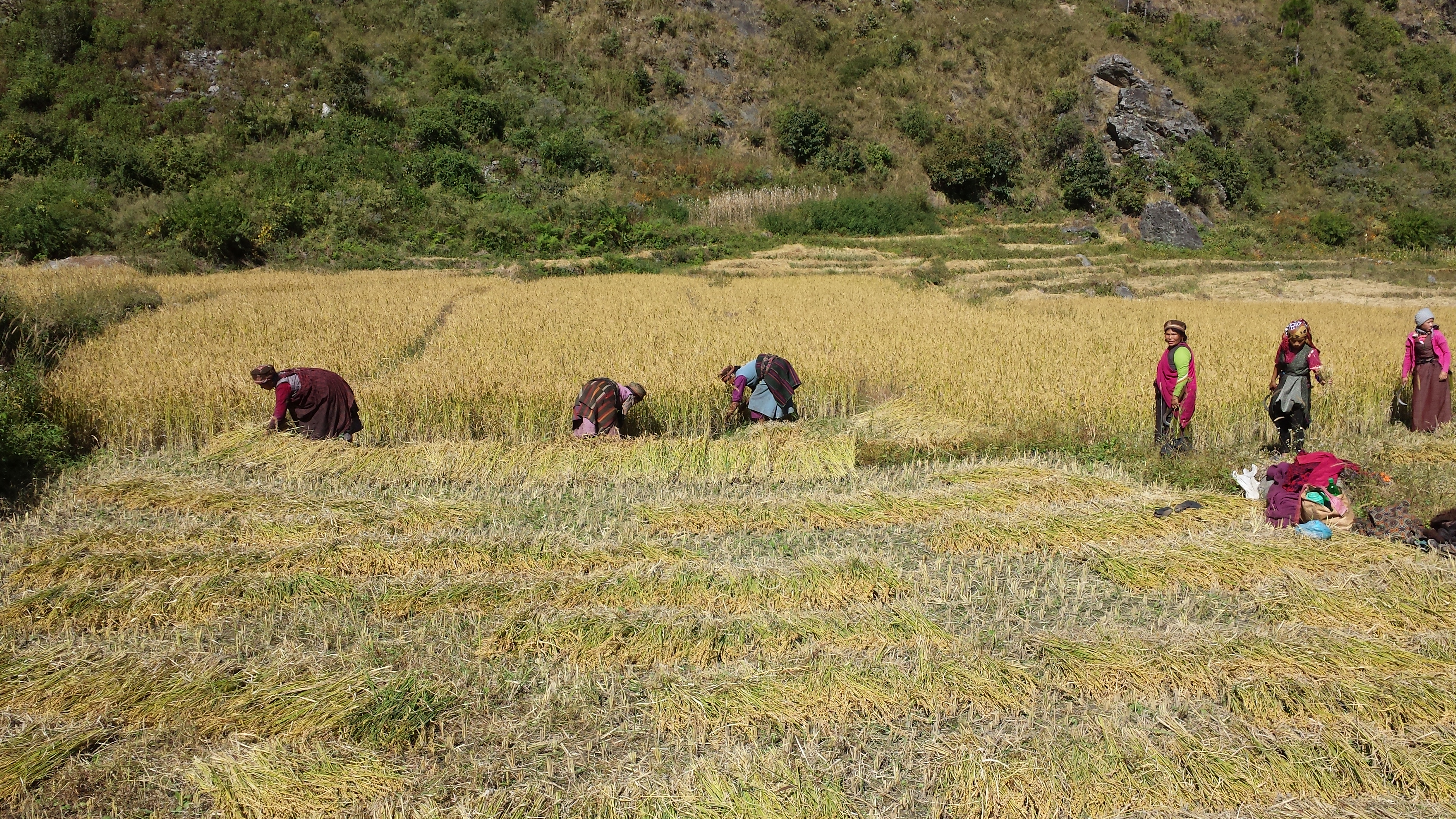 My perspective is oriented toward empowering women. Oppression and degradation of our mothers, daughters, and sisters is consistent across national, cultural, and socio-economic lines. Here, interestingly, it was mainly women, ranging from young girls to grandmothers, working the fields during harvest. Most men of working age are in the city or out of the country, sending money home.
My perspective is oriented toward empowering women. Oppression and degradation of our mothers, daughters, and sisters is consistent across national, cultural, and socio-economic lines. Here, interestingly, it was mainly women, ranging from young girls to grandmothers, working the fields during harvest. Most men of working age are in the city or out of the country, sending money home.
Touching on this, it is important to note, we continue to make unprecedented inroads of progress.
I believe the truest avenue to foster this is challenging our own thinking at every opportunity.
An incredible model of support and proliferating good I encountered has been the business plan of OneSeed Expeditions. I was thrilled to learn that 10% of what I paid for this adventure went directly to micro-finance loans in the country.
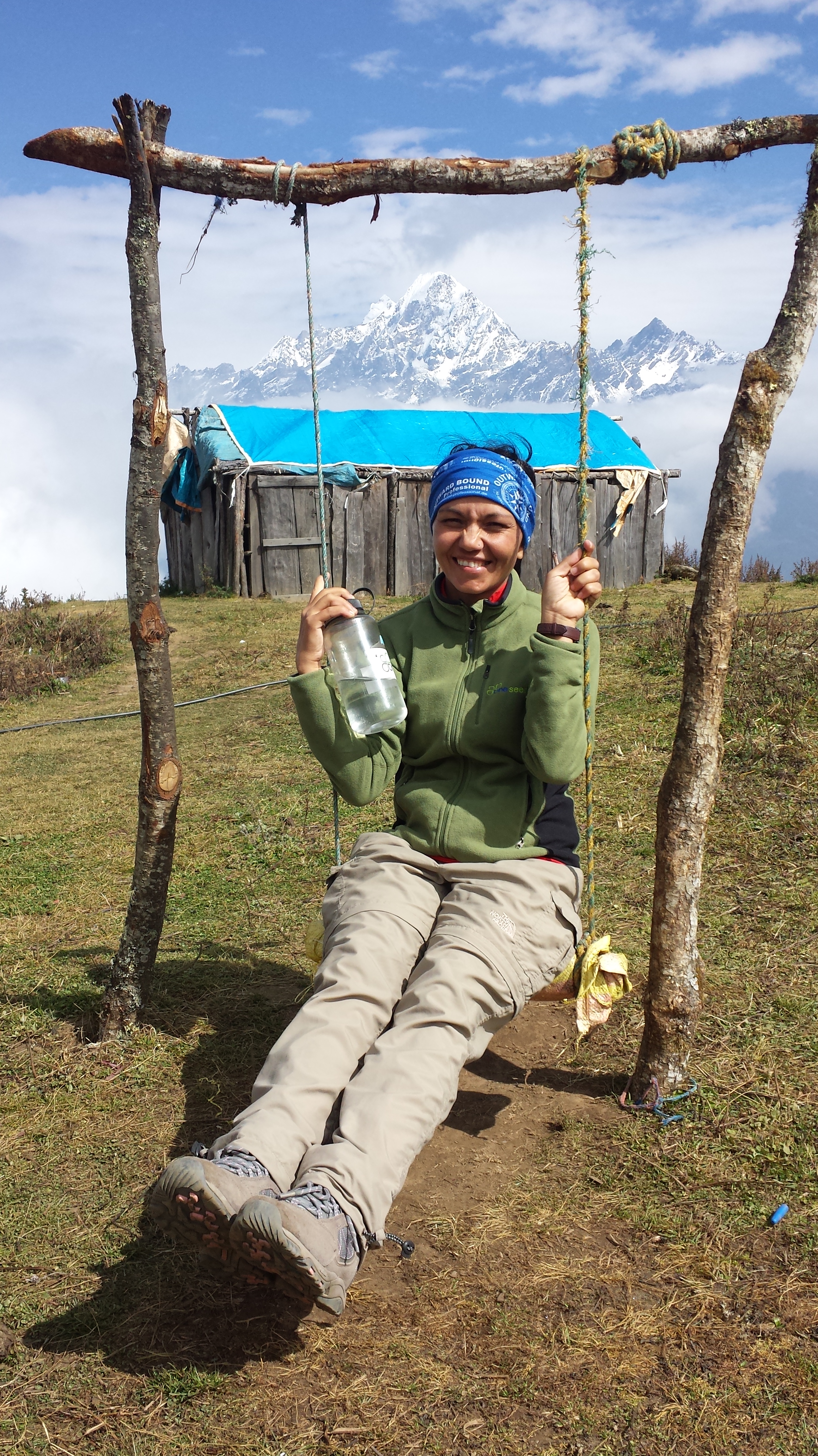 Interacting with our guide, Goma and the Guides in Training added a cultural component of depth which blew me away. Watching out the window one sunny morning as one of our guides squatted with the tiny daughter of the Guest House keeper, brushing his teeth with her, encouraging her and giving pointers. Implanting such an important and rudimentary health practice. They were a line to the cultural experience beyond my reckoning and truly opened the hospitality of this country to us.
Interacting with our guide, Goma and the Guides in Training added a cultural component of depth which blew me away. Watching out the window one sunny morning as one of our guides squatted with the tiny daughter of the Guest House keeper, brushing his teeth with her, encouraging her and giving pointers. Implanting such an important and rudimentary health practice. They were a line to the cultural experience beyond my reckoning and truly opened the hospitality of this country to us.
From profit sharing, employing women in an industry which dissuades such, providing employees with health insurance (also counter to common practice), Chris manages the company with deep integrity of the sort which made me honored to participate. We were even joined by an employee of Patan BPW at the celebration dinner which concluded our trek to tell us about their work.
I suppose the long and short of it is, promote conscientiousness. Support what rings true for you. To invest in direct relationships. For, through the times of darkness encountered in our own lives, sometimes these are the light which guide us through.
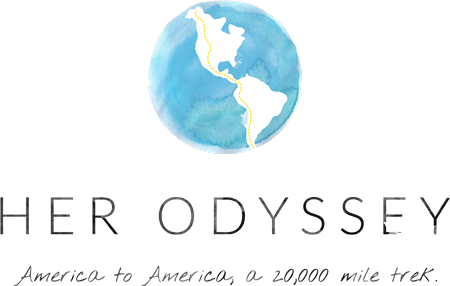


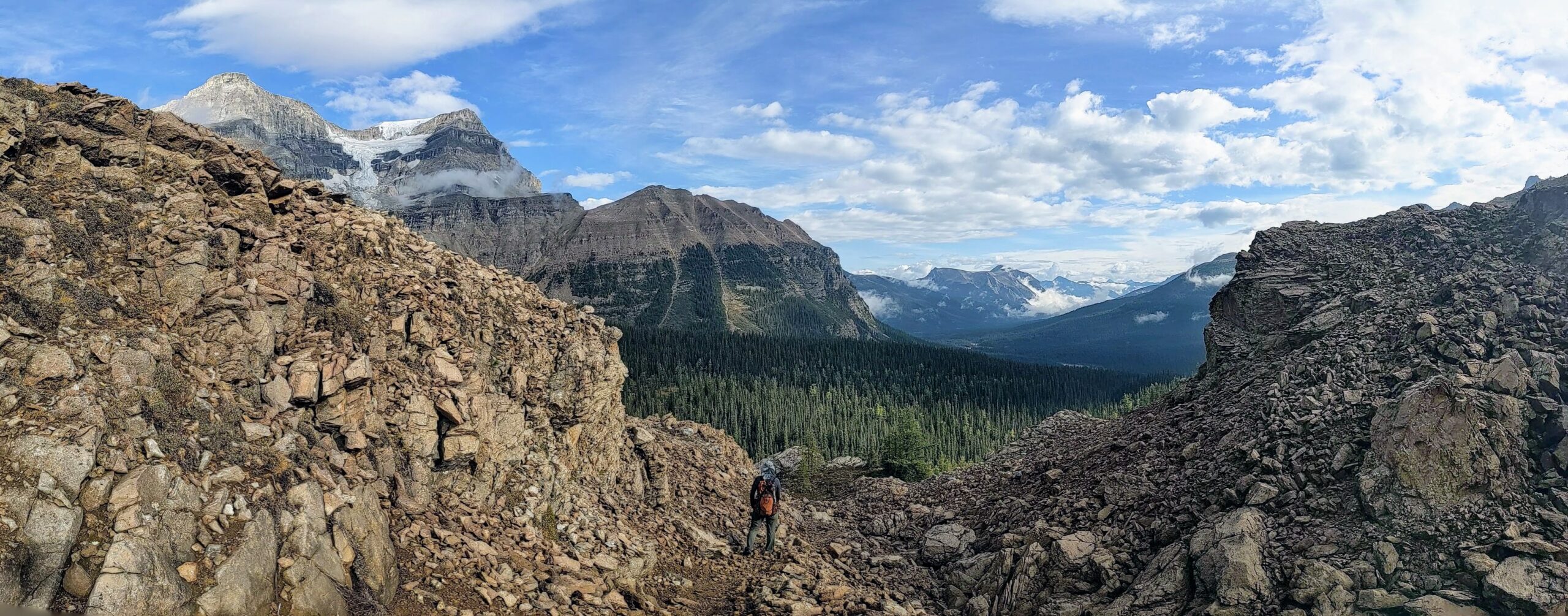


Comments (7)
I appreciate the thoughtful details and perspective you offer.
Thank you, auntie! Your encouragment means a lot.
“Support is directed at achieving an outcome.”
Does it matter whose desired outcome to qualify as support?
As ever, poignant question, querida!
This strikes close to the heart of the conundrum. I don’t think there is a blanket answer but I do believe the answer always lies in communication between the involved parties.
great to now know your chronicles of your Nepal trek, and the photography was breathtaking. how exciting, and a trip of a lifetime! thanks so much for sharing it in blog and on facebook. i have truly enjoyed it.
Great post, Bethany! This is a hard one for me sometimes. I think it just depends on where you are giving money. If giving it to an individual, I think it is important to let them make the decisions, who are we to tell them what is most important and where they should spend their funds? A friend of mine told me about an organization in Kenya (?) that would give people $1,000 and let them do what they pleased with it. As a whole, the money was invested and spent to better the family. Organizations are a whole other thing. From what I have seen and heard, I don’t believe a single one of them are honest in their spendings-this being the ones I have been in contact with in Malawi, and run by Malawians, meaning, they have lived a life of poverty and I believe, have been in a survival mode since the beginning of their lives. I also have found that most organizations or companies don’t have much supervision. Of course they are going to steal the money if they will not be caught, who wouldn’t?! How many people in the states do we hear of embezzling large amounts of money? Tons. And those are people that have means to make a lot of money. I think it is a sad reality of not only poverty, but also human nature. We have the instincts to survive and get ahead. We are driven by money and most people will do anything to get their hands on more. It’s a problem in all parts of the world, sadly.
Very very true. You have been front lines with this sort of thing there in Africa. I struggled b/c I don’t want to believe that humans are intrinsically evil. As you point out, poverty or not, folks are just plain greedy. The closest I can reckon is our salvation lies in one another. Checking in and accountability. Just one of the reasons I am thrilled to pace with you, to strive to make things better. From our own selves, to our communities, to the global family.
I say, once you are back state side, we make a time and place to sit and hash through this and so much else!